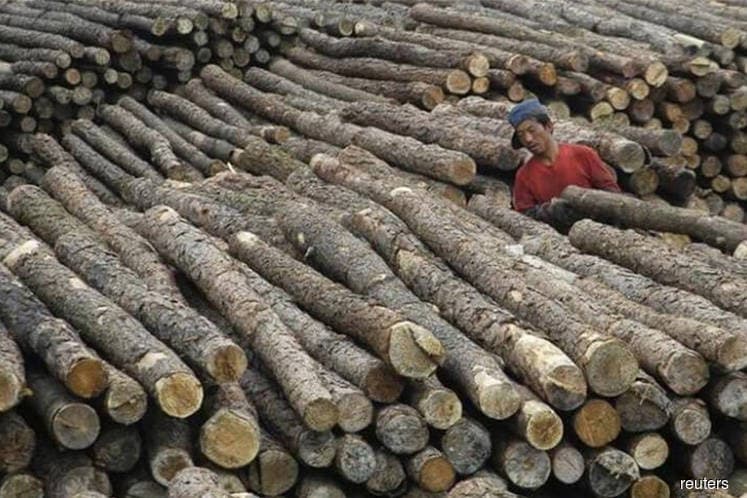
This article first appeared in The Edge Financial Daily on October 22, 2018
KUALA LUMPUR: The far-reaching consequences of the escalating trade tensions between the US and China are also a concern for the timber product export industry, according to new Malaysian Timber Council (MTC) chairman Datuk Low Kian Chuan.
While manufacturers of furniture, wood-based panels and commodities like rubber and palm oil may benefit from the diversion of investment and demand from the two countries, there is the potential that excess Chinese timber products may be dumped into export markets that Malaysia currently supplies to, like Europe and Japan, Low said.
“For example, Chinese plywood may potentially flood the Japanese market, which is currently the largest market for Malaysian plywood. [There is also the] potential risk of dumping of China-made wooden products and furniture into Malaysia, which affects companies focusing on the domestic market, though this will provide more choices for domestic users,” he told The Edge Financial Daily in a recent interview.
Hence, with Malaysia’s open economic policy, Low urges stronger trade relations with both China and the US, focusing on attracting foreign direct investment from these countries.
Still, trade tensions notwithstanding, Low foresees that Malaysia will be able to achieve its target of RM25 billion export value by 2020 under the revised National Timber Industry Policy. To achieve this, he said, Asia will be the focus region for Malaysia’s exports of timber and timber products in the next few years.
In August, the Malaysian Timber Industry Board revealed that Malaysia’s timber industry contributed RM23.2 billion to export earnings last year, up 4.8% from 2016.
“Malaysian exports of timber products to Asia are expected to benefit from its positive economic prospects, backed by infrastructure spending and domestic demands in the region.
“The Philippines, Indonesia, Thailand and Vietnam are potential markets for Malaysian timber products,” he said.
Malaysia’s timber exports to developed countries such as Japan, the US, Europe and Australia, meanwhile, are also expected to increase due to strong demand for Malaysian timber products that meet global standards and market specifications.
“The most critical issue right now is the mindset of timber operators. This industry is of course full of challenges, but it is also full of opportunities. So we would like to encourage them to get the right people to be their successors and be innovative in the way they do business,” said Low, a long-time industry player.
Low said most timber operators view the timber industry as a sunset industry, given the diminishing raw materials available in Malaysia. Moreover, Primary Industries Minister Teresa Kok has stated her commitment to maintaining the country’s forest cover at 50% at least.
“With diminishing log supply from our natural forests owing to the reduction in annual coupe for sustainability and bio-conservation, MTC plays a crucial role in assisting the timber-processing industry in augmenting the supply of raw materials,” he said.
“We (MTC) are more into providing services to help our members market their products overseas. But now, we want to be more efficient by doing things differently. For instance, we want to go in depth into data analysis. So we not only facilitate [our members] but also help them in concept intelligence, market intelligence, and data analysis, to position Malaysia to be more innovative with the use of the high technology,” Low said.
MTC acts as a bridge between timber companies in Malaysia and importers from other countries around the world to match the needs of customers to suppliers, and to facilitate exports. MTC has offices in London, the UK, Dubai, the United Arab Emirates, and Guangzhou, China. More recently, it has added Bangalore, India to the list.
Malaysia currently exports timber products to more than 160 countries around the world.
Low said he wants to promote value-added timber products via MTC, particularly interior-decor products such as flooring, wall panelling, doors, skirtings, mouldings and furniture for the export and domestic markets.
However, besides diminishing raw material supply, Low highlighted that the key issues faced by the Malaysian timber industry are market access, labour and access to financial facilities for small and medium enterpries.
“Workforce availability is a dire issue within the timber industry, followed by the availability of raw material supply. With Malaysia heading towards being less reliant on foreign workers, the timber industry needs to adjust to these changes by investing in automation and mechanisation,” he said.
Moving forward, Low also thinks the industry should focus on downstream processing to lift the value of the timber industry as a whole.